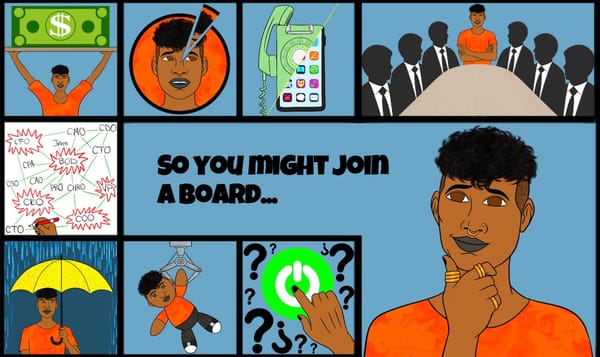fascist capitalism, nonprofits, and you
can nonprofits meet this moment?

Nonprofit organizations, and charities before them, seemed like the saviors of our society. They alone can turn back the excesses of capitalism. They act where government is too inefficient or too cheap to do so. Fighting racism, economic inequality—even capitalism itself—all fall on nonprofit shoulders. Nonprofits do critical life-saving work in many of the areas and sectors they operate in. Without them, the vultures of capitalism would be picking clean a lot of people's bones.
But nonprofits are also a product of capitalism. Without them, more people might feel the reckless greed of billionaires in society. They might not be so quick to assume that the beleaguered charity down the street has it all covered. But this is a great position for a nonprofit to be in. To succeed, a nonprofit only has to create a slightly better world than the one we'd have without them.
With the world now coming around many of us, I have to ask: are nonprofits the best we've got? Are they well-positioned to fight root-cause inequality? Can they lead the charge to eradicate the racism, sexism, transphobia and greed around us? I think the answer is no. Here's why.
their structure confines them
Nonprofits and foundations use a 501(c)(3) tax structure. This allows them to do their work without paying taxes. It prevents them from spending more than 10% of their budgets on advocacy. Independent Sector reports that in 2022, only 31% of all nonprofits did any advocacy work. Nonprofit leaders are worried they'll lose donors or even their nonprofit status. And most nonprofits, under the guidance required by a board of directors, try to run like a for-profit. These practices may force a nonprofit to keep cash on hand, run on a tight budget, cut staff, and reduce services. They may push these community organizations to plan for a future that may never come.
Enraging donors is another reason why nonprofits find it hard to take a stand. They can't take bold positions without losing potential grantors or donors who disagree. What incentive does a nonprofit have to challenge a potential donor's view of the world? At best, it leads to a messaging split: "yes, we house people, but we also meet your pet project of forcing degenerates off the streets." Two positions can't oppose each other and still have the same importance. Yet we ask nonprofits to do this all the time.
they will save themselves first
Nonprofits reduce but don't solve the damage that capitalism causes. But nonprofits get to control that story. They set the terms of the problem and then make themselves the solution. Organizations focus on their branch cause, or the problem that is easy to understand. They ignore root causes, the thornier and more complex problems that need solving.
The way most nonprofits make money can also be a liability. Folks in their network need to keep giving so they stay afloat. This means that most of the nonprofits' activism leads right back to them. Their most basic call to action is for people to continue donating, or to "spread the word" about their impact. They must show their impact growing, year over year, forever.
they have failed before
The limits above make it very hard for nonprofits to be bold. They don't have the skills to challenge the culture that's dominating american workplaces. They're too cautious, too halting, too quick to compromise. They are too eager to start with what they want to do, instead of what we need to do. For decades now, they've struggled to challenge white dominant culture itself. They dragged their heels through civil rights movements. They post about pride and how Black Lives Matter, then erase those statements later. They give in to their moral opponents but almost never to the demands of their staff. They hide their beliefs in the hopes that it will help them survive another quarter. They seek to bridge without first standing firm in their values. They blame racism but not racists while upholding the benefits those racists still enjoy.
Even when we mean well we do it wrong. When we call for a diverse workforce, they twist the message. They imply that people of the global majority aren't worthy of their jobs without "help." Diversity hiring has never meant we lower our standards, only that we expand who can qualify. Yet every single person of color has to wonder, to bristle against, to hear directly, that they are a "diversity hire." How can we expect leaders to stand against fascism when they won't even stand up to claims like that? Why do major organizations think they won't lose funding even after scrapping their DEI boogeyprograms? We are being divided and conquered all too easily.
what we can do better
The past failures of this industry are not an excuse to give up. We need all the allies we can get. But we won't succeed with deserters or fake friends among us. We have to do this better.
Be clear about where you stand. It's time to focus on accomplishments. If your racial equity statements are still languishing at "learn" and "listen" it's time to do more. If your affinity groups don't meet except to plan social activities, do more. Hide the structures if you need to, but don't give up on actions. Show the people what your statements mean without making more statements.
Stop making excuses. A fear of advocacy is not an excuse for advocating for real solutions. Some nonprofits solve this by operating many entities under one umbrella. A 501(c)(3) nonprofit may run alongside a 501(c)(4) lobbying firm and a Political Action Committee. This combined approach unshackles what a traditional nonprofit can do.
Grow like mushrooms. The government funding cuts of the past few weeks have shown the dangers of relying on that funding. Our over-reliance on one entity, the nonprofit, makes it easier to unravel everything. The group AORTA this week urges us to shore up our mycorrhizal networks of community support. What if nonprofits instead acted more like a fungal network spreading underground? What if smaller interconnected organizations shared skills, resources, and connections? Instead of 5-year strategic plans, run organizations with a 5-year lifespan. Then, dissolve the group and form something new.
lesser of the evils
Are nonprofit organizations up to the many challenges we face? I don't know. It's obvious that not enough of us have met the moments we've faced in years past. This country has never been fair to everyone who lives in it. The progress we've made, meager in some ways as it may be, now faces severe backlash. Our work so far has not been enough. My goal this week is not to shame, bully, or hurt people's feelings. I'm doing what I can to shake people to action.
It's clear to me that the structures we've relied on to date aren't enough. We need new ways to organize and new paths to the future. The old ways may never work again. What could accepting that free us to do? What can we do instead? What can we do now?



